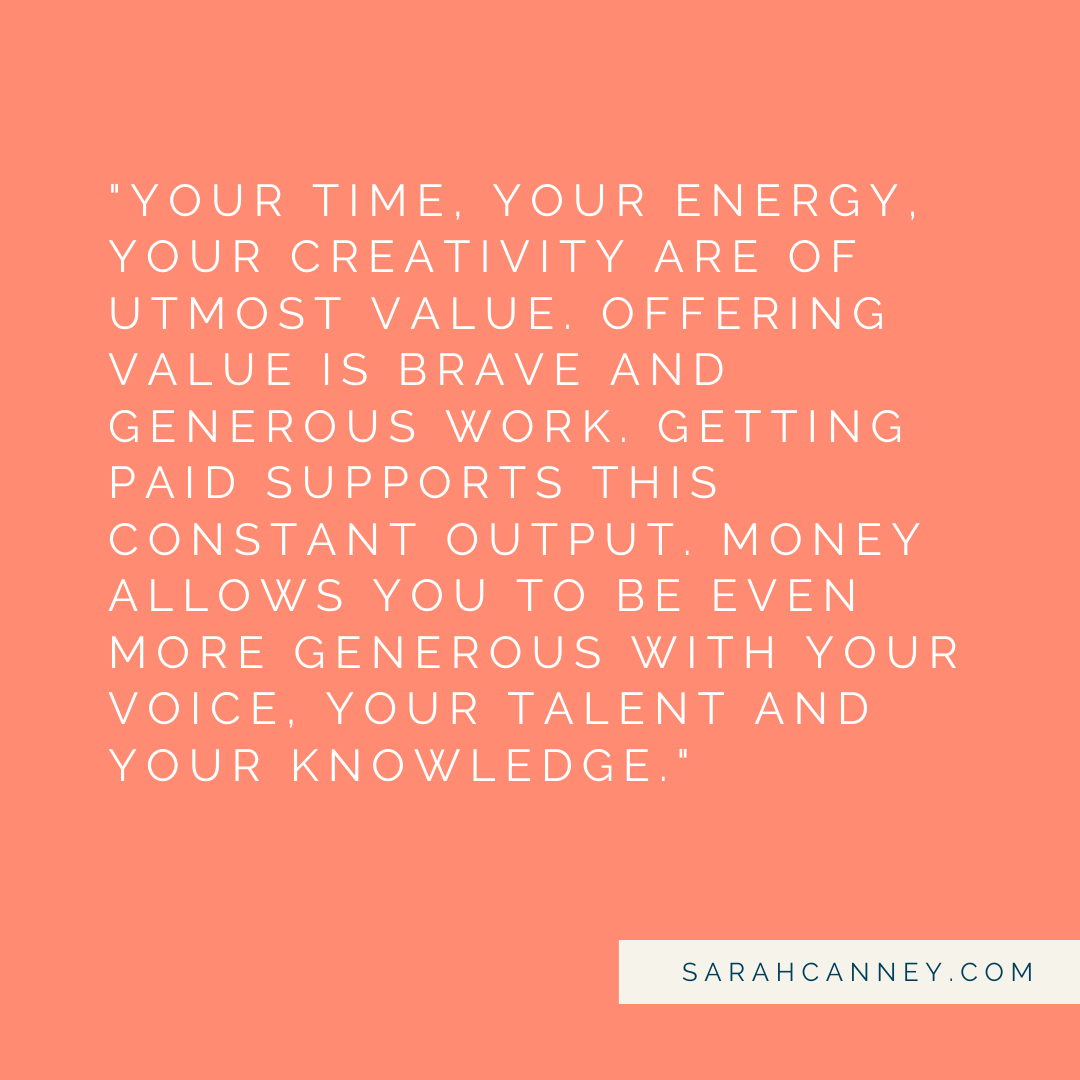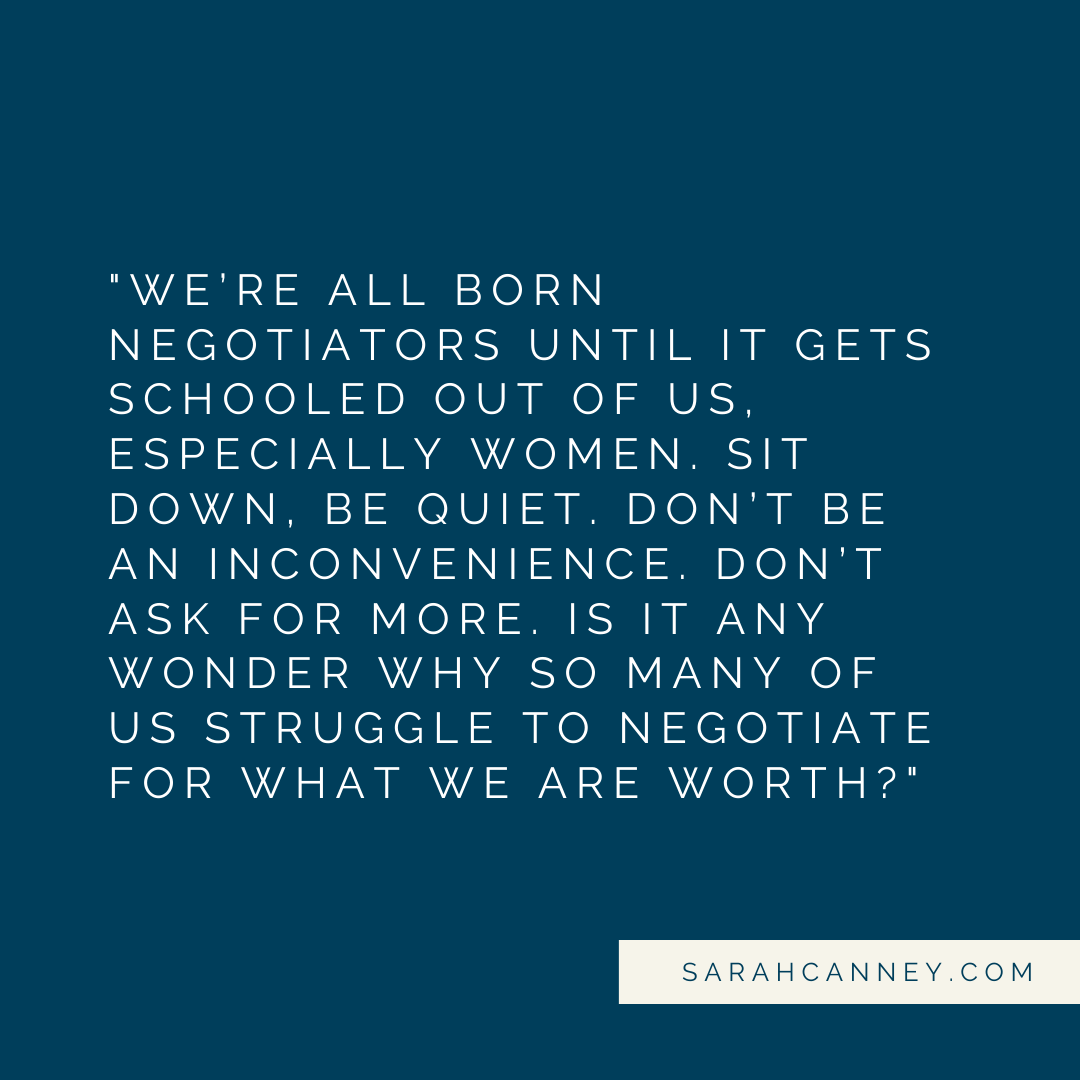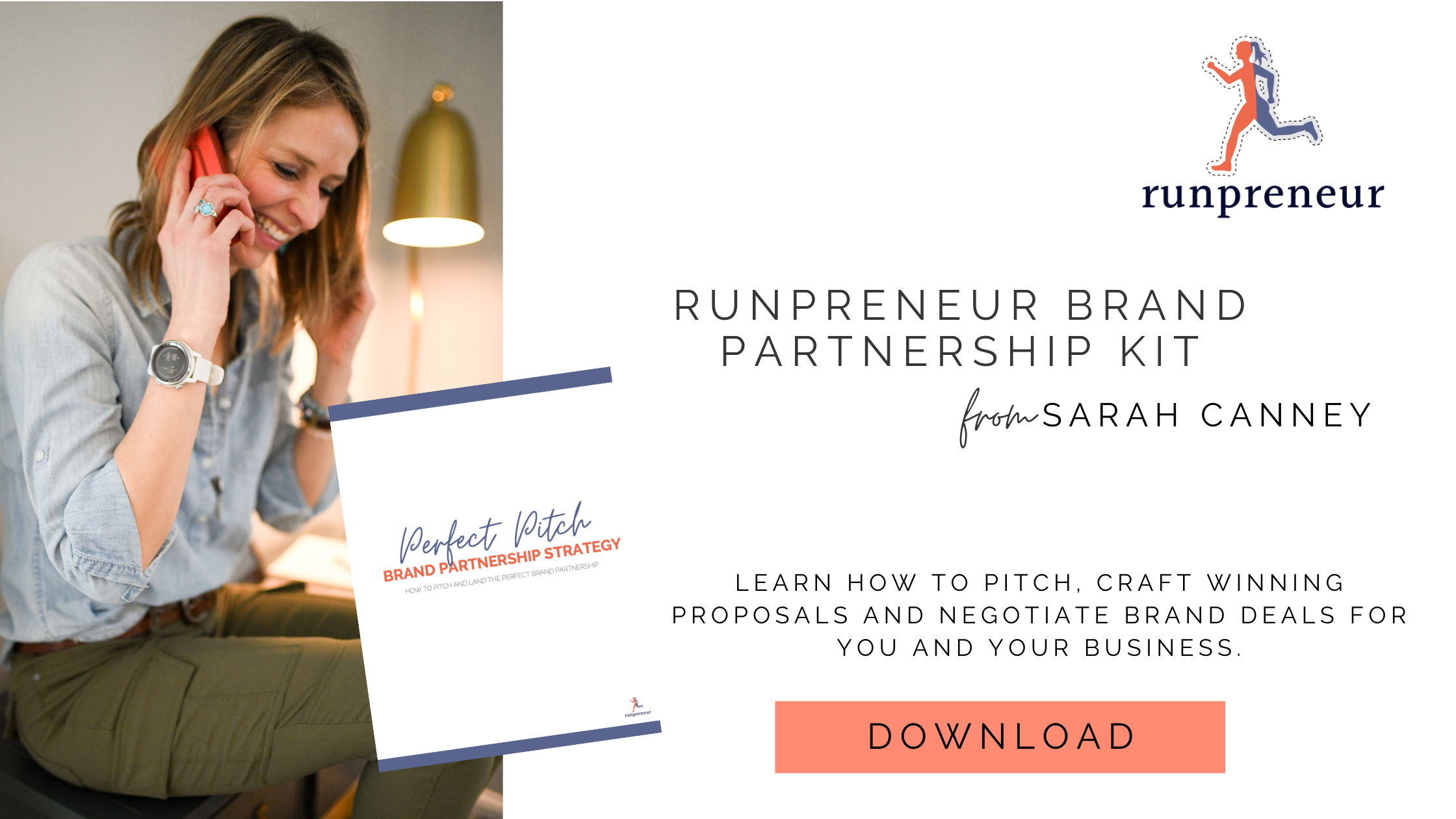How to Negotiate and Land Brand Deals
If you think about it, we’re all born negotiators. I can think of three really skilled negotiators who run around my house in the bodies of my children. We’re all born with the skill and the ability to negotiate for what we want. Want to stay up past our bedtime? We can totally plead our case. Want to have another cookie? Been there, done that. Want to sit in the middle? You’ve probably negotiated for that too--even though it totally doesn’t matter what it is in the middle of, for whatever the reason the middle is the coveted spot.
We’re all born negotiators until it gets schooled and scolded out of us, especially women. Sit down, be quiet. Don’t be an inconvenience. Don’t ask for more. Is it any wonder why so many of us struggle to negotiate for what we are worth? We’re uncomfortable talking about money. We’re uncomfortable asking for raises. We shy away from advocating for ourselves because it’s easier to sit down, shut up and be content.
Here’s the problem: you’re selling yourself short. It’s time to stand up, demand what you’re worth and walk if you don’t get paid.
Your time, your energy, your creativity are of UTMOST value. Offering value is brave and generous work, but generous does not equal FREE. Brave and generous work requires that you show up every day, showing up takes time, energy and emotion. Getting paid supports this constant output. Money allows you to be even more generous with your voice, your talent and your knowledge.
You do a disservice to the industry, to your peers, to your fans and followers, your family and ultimately yourself when you do something for free. Which is why learning to negotiate is such and important skill.
[Helpful Books to Read]
Never Split the Difference: negotiating as if your life depended on it by Chris Voss
Alter Ego Effect by Todd Herman
Understanding Worth
If you’re able to recognize your own value, you’ll have a much better chance of entering into any negotiation feeling confident. You might not be certain of the outcome, but at least you’ll feel confident in what you have to offer and what you believe that offer is worth.
For some, myself included, recognizing our inherent value is part of our life’s work, we have to remind ourselves time and again that we are deserving. If that’s you or if you’re hung up on this idea of asking for money, spend some time getting curious around why that is. See if you can dig down to the root of your beliefs not just about yourself, but about money and your relationship to it.
Be Prepared
Part of entering into a negotiating conversation with confidence is being prepared. It’s essential that you know your offer inside and out and know the brand you are pitching too. Knowing your offer means that you’ve set up your custom proposal and are prepared to speak about it with certainty. It doesn’t hurt to rehearse what you’ll say.
In addition to knowing your side of the conversation, it’s essential that you know and understand the brand you are working with. Do you know their mission? The vision of their company? The themes of their current campaign? What are their goals and values? Basic research on their website and social media should yield enough information to get you started and what you don’t know, ask for. Here are a few examples of things you can ask for either via email or in a phone conversation:
Do you have and/or can I get the campaign brief?
What is the brand trying to accomplish through this campaign?
What would you consider a successful partnership?
What are the goals of this campaign/partnership?
Your next preparation is to show the alignment between what you are bringing to the partnership and the goals and values of the brand. Doing your homework in the regard will give you better leverage when negotiating for a higher rate.
Need a little help preparing? Download the Runpreneur Perfect Pitch Kit and use the Negotiation Template to guide your preparation. Download HERE.
Advocate for Yourself
When it comes to negotiating for your value and the rates you have set for yourself, ultimately you are the one who sets the price. Granted, you should factor in the market that you’re in (we discussed what to charge in a previous post) and average rates within that market. Imagine if you’re selling eggs at the Farmer’s Market, among a half dozen other vendors also selling eggs from equally well-loved, humanely raised chickens. If your eggs are the most expensive eggs, chances are you’ll be carting a lot of those eggs back home with you. But if those eggs are from some exceptionally rare speckled hen that lays golden freaking eggs, then you better be charging top dollar.
Here’s the thing, if the market is showing that you should be charging a standard rate, then do your best to be the speckled hen, do something that sets you apart from everyone else in the market. Remember that you are unique as you are, you are your own niche, with your own story and value, you have the power to creatively show others how valuable and worthwhile that is. And remember: Your time, your energy, your creativity is of UTMOST value and offering that value to the world is brave and generous work,
When Free and Discounted are OK
Once you’ve established your rates and feel confident in your negotiating skills then you can dip into the gray area of doing things at a discount or for free. For me, the ultimate litmus test for exchanging my time and energy at a discounted or free rate is whether or not it feels in line with my values. I’ve worked for free to gain experience and I’ve worked at a discount to help out a worthy cause or individual. Ultimately, you have to decide if the experience will move your forward on your trajectory or keep you stuck, if the opportunity moves you forward, go for it, but if it has the potential to keep you stuck or worse attract more free or discounted offers, then your best answer is ‘no.’
Keep in mind that once you agree to free and discounted work it becomes easier to default to that every.single.time. Remember that saying ‘no’ and walking away can often open you up to even better and bigger opportunities.
When it comes to brand partnerships they key success is preparedness and confidence. The more you put yourself out there, the more emails you send, the more phone calls you get on, the more you are willing to risk hearing ‘no’ the more confident you’ll become and ultimately the more successful.
Good luck!
-Sarah
PS Need a little more help? I work one-on-one with individuals coaching them through brand partnerships, custom proposals and the negotiation process. Interested in working together? Schedule a call and we’ll chat!



